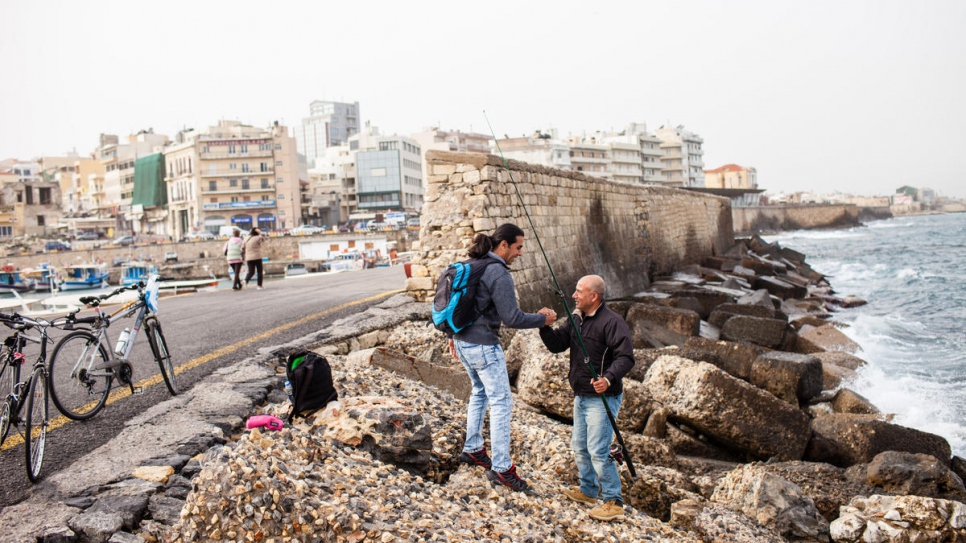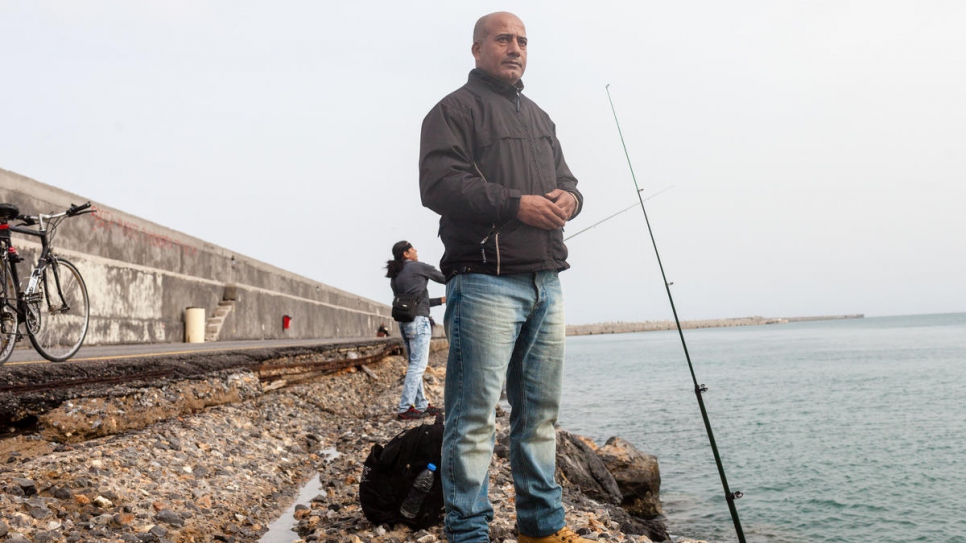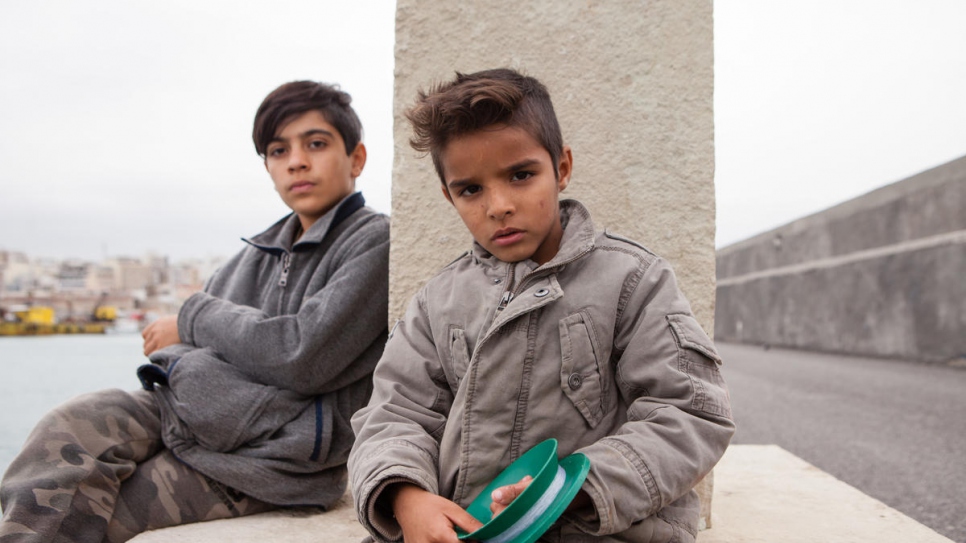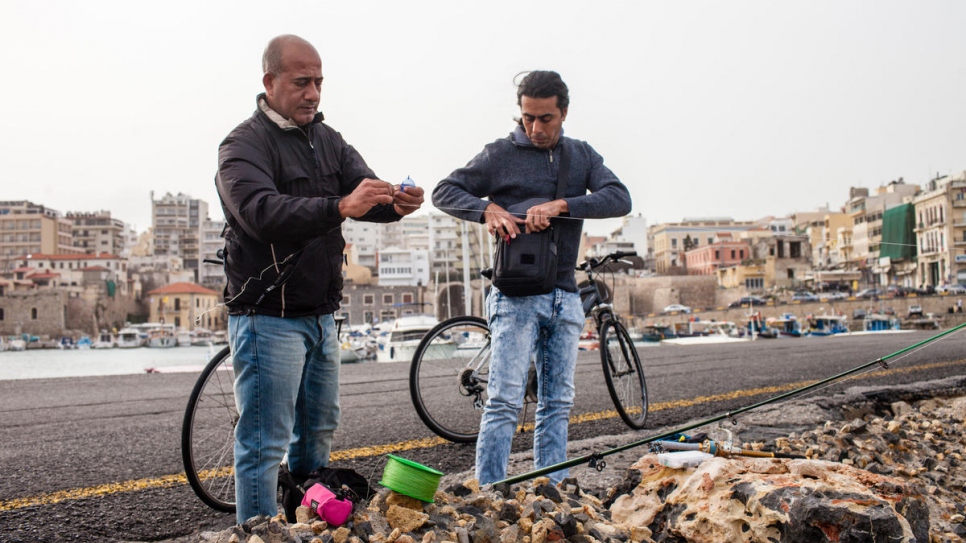It is not a good day for fishing. That is a blow for Ismain and Walid, who were counting on some fish protein for supper. The two men come from different countries, religions and backgrounds, but their shared love of fishing has blossomed into friendship and brought some peace of mind in forced exile.
The sky is overcast and the sea is choppy, but they persevere – the two asylum-seekers have time on their hands in the Cretan town of Heraklion. “We cook the fish and eat it or give to friends. Fish are very expensive here,” says Ismain, a 50-year-old from Damascus, where he was a cinematographer and artist.
Walid, the younger man at 37, says he occasionally fished in Iraq’s rivers, which requires different techniques from the sea. “Here, I started fishing for food, for a hobby and for company,” Walid says, hopefully casting his line under the shadow of the Venetian fort that guards the entrance to Heraklion’s ancient harbour.
“We cook the fish and eat it or give to friends."
Both men are beneficiaries of UNHCR’s accommodation and cash assistance programme, which has helped thousands of vulnerable refugees and asylum-seekers in Greece over the past two years. “The people are very welcoming and it is very nice here,” muses Ismain.
After fleeing Syria last year, it took Ismain and his family 13 attempts to cross from Turkey to Greece because of bad weather or a police presence. “I sensed that our lives were threatened [in Syria] so I said we’d better leave,” the father-of-three explains. “After seven years of war, it gradually got dangerous for everyone.”
Physics teacher Walid faced a more immediate threat to his safety in Baghdad. “I am Christian and I was threatened by militia,” he says, adding that he was attacked and injured by men with gun and knives. He fled to Erbil and then on to Turkey and Greece, before being transferred by UNHCR from Lesvos to Heraklion.
The two men face different futures. While Ismain hopes to be reunited with family in Germany soon, Walid has been waiting for months for word on his application for asylum in Greece. “I had the [asylum] interview eight months ago and have not heard anything,” he says. “The important thing is to finish my studies and complete a masters in physics.”
Aside from the frustration of waiting, both men have felt happy and safe in their apartments, but still wanted to do something to occupy their time. “I don’t like people to give me money and pay for me. I’d like to be independent,” says Ismain.
He had seen fishermen go out in small boats and come back with a healthy catch. He decided to give it a go, buying second-hand equipment and trying his luck off the harbour, watching others for guidance.
One day he recognized one of the anglers. It was Walid, who had been in the same mainland accommodation site as Ismain before they were moved to Crete. They soon hit it off. “We’re friends, best friends,” says Ismain.
"I’d like to be independent."
Walid says he started fishing for similar reasons to his friend. He would like to do it for a living, “but I don’t have a boat.”
Ismain’s mind is more focused on his coming move to Kiel in Germany, but he has valued the solidarity of Walid and his other fishing friends. “Fishing is very important because it’s a plus for our dinner table and we can save money,” he says pragmatically, referring to the cash grant that his family receives from UNHCR each month under the EU-funded ESTIA programme.
“Back there [in Syria] we only heard screaming and bombs. When we come to the sea we feel calm,” Ismain adds poignantly. In Kiel, he hopes to use his years of experience as an artist and cameraman to support his family.
“I paint every day,” he continues. “I do political cartoons as well as landscapes. In Germany, I would like to continue painting and became an art teacher.”
Maybe he will also resume his fishing – Kiel, after all, is by the Baltic Sea.





